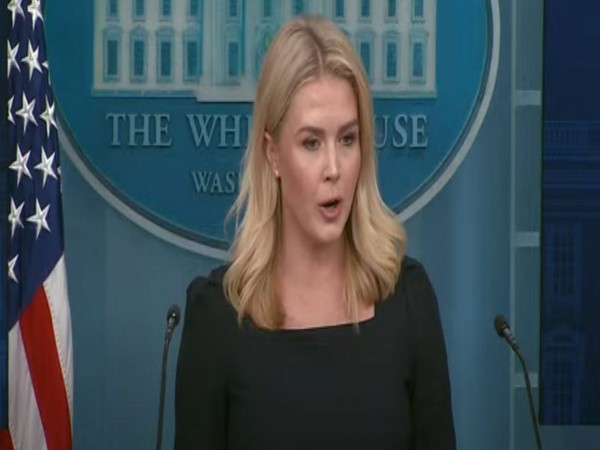Farmers' protest constitutional until it doesn't destroy property, endanger life: SC
Dec 17, 2020

New Delhi [India], December 17 : The Supreme Court on Thursday observed that a protest is constitutional until it doesn't destroy property or endanger life and remarked that the purpose of the farmers' protest cannot be realised by demonstrating without engaging in discussions.
A bench headed by Chief Justice of India Sharad Arvind Bobde said that it was considering setting up an impartial and independent committee that will hear both sides and submit its findings.
"The protest is constitutional till it does not destroy property or endanger life. It is an absolutely perfect protest. But the purpose cannot be realised if they could continue to sit without talking. the Centre and the farmers have to talk," CJI Bobde said.
The bench said that the farmers have a right to protest and it will not interfere with the same, but added that it will ask the Central government to slightly alter the manner in which the protest is being held to ensure it doesn't affect the citizens' right to movement.
"We are thinking of an impartial and independent committee before whom both parties can give its side of the story. The committee will give a finding which should be followed. The protest can go on in the meanwhile and the protest cannot endanger life," CJI Bobde said.
"We don't have to learn non-violent protest from anyone else. Protests must be about issues in which the aggrieved party may be allowed to articulate. The committee can have P Sainath, Bhartiya Kisan Union and others," he suggested.
The bench, which was hearing a batch of pleas against the farmers' protest at different borders of the national capital, said that it will not decide the validity of the laws as of now. "The first and the only thing we will decide today is regarding the farmers' protest and the fundamental right of citizens to move. The question of the validity of laws can wait," it said.
Senior advocate Harish Salve, appearing for one of the petitioners, said everyone living in Delhi is affected by the farmers' protest and added that curtailment of movement of goods means an increase in prices.
"One right has to be balanced with the Right to Life. The Right to Life is the most important right. That is being affected due to obstructions in movement. No right is absolute, even the Right to Free Speech. One cannot hold a city to ransom and say either government listens to us or stop the country from living," he said.
Attorney General KK Venugopal submitted that the farmers are saying repeal this law and added that the three laws have to be discussed clause by clause. "The committee has to discuss each clause in the three laws so that there is a meeting of minds. They can't say repeal or nothing. Complaint needs to be given to the government," he said.
The Chief Justice of India observed that the farmers might not accept the conclusion the government reaches and said to leave the matter for the committee to decide.
The bench said that it had yesterday observed that the government has not been successful in negotiation, to which, Attorney General replied that it was because of the farmers' adamant stand. Farmers may think you are adamant, the CJI said.
Venugopal expressed concern over the spread of COVID-19 due to the farmers' protest.
"This blockade of roads is impacting the right to movement and none of them wears face masks and sit in a bunch. So, when COVID-19 is concerned, it will now be increasing rapidly, they visit villages and will spread COVID-19 all across India. Farmers cannot violate others' fundamental rights. They say they have come prepared for a six-month protest. All roads coming to the city cannot be blocked. This happens only during a war," he said.
Solicitor General Tushar Mehta, appearing for the Central government, suggested people of eminence to facilitate dialogue between the farmers and the Centre instead of constituting a committee.
"We need someone who can break the ice. I am suggesting that instead of a committee adjudicating let there be people of eminence who can facilitate the dialogue. We have solutions issue wise to farmers. We have given them in writing too," Mehta said.
Senior advocate P Chidambaram, appearing for the Punjab Government, submitted that a large number of the protesting farmers are from Punjab and added that they want to come to Delhi and protest subject to law and order.
The CJI responded, "who here guarantees that there will be no injury to property and life? Should this be not left to the police? The court cannot decide and does not have the wherewithal to handle a mob. The court cannot predict which mob can become violent, only police can do so. We cannot jeopardize someone's life or property."
Chidambaram said that the farmers don't want to block any roads, but want to enter the national capital and protest accordingly.
"They cannot block the road and say that farmers are blocking it. They want to enter Delhi and not block any road. We will help in whatever way the Punjab government can. we have a proposal. If you make so many amendments then the original Act goes. Convene the Parliament and discuss. They (farmers) are not saying repeal, they say this law is not good. They (government) can adopt repeal and reenactment," he added.
Advocate AP Singh, appearing for the Bharathiya Kisan Union (Bhanu), asked why can't the Ramlila Maidan be given to the farmers to protest?
The CJI observed that the court cannot determine whether the protesters can maintain peace in Ramlila Maidan or not. "We have to leave it to the police," said CJI Bobde.

















